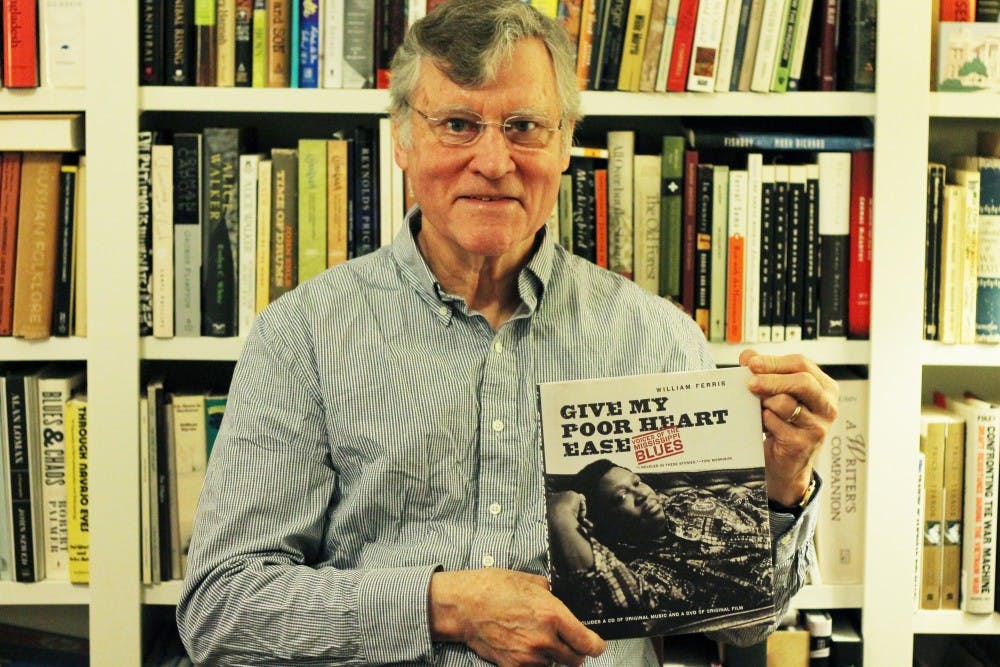Professor William Ferris will give a lecture Friday based on his latest book “Give My Poor Heart Ease: Voices of the Mississippi Blues.” This event is in celebration of Black History Month.
Staff writer Rebecca Pollack sat down with Ferris to talk about his book and his life growing up in Mississippi.
DAILY TAR HEEL: What was the inspiration for this book?
WILLIAM FERRIS: I was inspired by growing up on a farm in Mississippi and hearing spirituals in a little black church as a child.
As I grew older I realized there were no hymnals in the church, and when the families were no longer there, the music would disappear.
In high school, I began to record and photograph the church and the music and sermons, and that led later to photographing and interviewing blues singers and to a career as a folklorist and teaching.
Several years ago I decided to go back and publish the interviews I did with musicians with pictures and to edit those so that each voice would have its own chapter in the book with photographs and accompaniment.
DTH: Mississippi is your home state, so how did living there influence your desire to write this book?
WF: I felt that without me as a folklorist, these lives would be forgotten after their death.
I tell my students an African proverb that says, “When an old man or woman dies, a library burns to the ground.”




